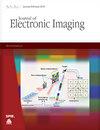用于局部特征描述和三维物体识别的多尺度点对法线编码
IF 1
4区 计算机科学
Q4 ENGINEERING, ELECTRICAL & ELECTRONIC
引用次数: 0
摘要
根据局部特征描述符识别三维(3D)物体是一项极具挑战性的任务。现有的三维局部特征描述符依赖于单尺度表面法线,容易受到噪声和异常值的影响,大大降低了其有效性和鲁棒性。本文提出了一种用于三维物体识别的多尺度点对法线编码(M-POE)方法。首先,我们介绍了 M-POE 描述符,该描述符用多尺度法线编码体素化特征来描述局部表面,表现出很强的独特性和对各种干扰的鲁棒性。其次,我们介绍了二阶图中的引导采样共识(GSAC-SOG),它是 RANSAC 的扩展,结合了几何约束并减少了采样随机性,从而能够准确估计物体的六自由度(6-DOF)姿态。最后,提出了一种基于 M-POE 描述符的三维物体识别方法。所提出的方法在五个标准数据集上进行了评估,并与最先进的方法进行了比较。结果表明:(1) M-POE 具有鲁棒性、鉴别性和高效性;(2) GSAC-SOG 对异常值具有鲁棒性;(3) 所提出的三维物体识别方法具有较高的准确性和鲁棒性,能够抵御杂波和遮挡,在 U3OR、Queen 和 CFV 数据集上的识别率分别为 99.45%、94.21% 和 97.88%。本文章由计算机程序翻译,如有差异,请以英文原文为准。
Multi-scale point pair normal encoding for local feature description and 3D object recognition
Recognizing three-dimensional (3D) objects based on local feature descriptors is a highly challenging task. Existing 3D local feature descriptors rely on single-scale surface normals, which are susceptible to noise and outliers, significantly compromising their effectiveness and robustness. A multi-scale point pair normal encoding (M-POE) method for 3D object recognition is proposed. First, we introduce the M-POE descriptor, which encodes voxelized features with multi-scale normals to describe local surfaces, exhibiting strong distinctiveness and robustness against various interferences. Second, we present guided sample consensus in second-order graphs (GSAC-SOG), an extension of RANSAC that incorporates geometric constraints and reduces sampling randomness, enabling accurate estimation of the object’s six-degree-of-freedom (6-DOF) pose. Finally, a 3D object recognition method based on the M-POE descriptor is proposed. The proposed method is evaluated on five standard datasets with state-of-the-art comparisons. The results demonstrate that (1) M-POE is robust, discriminative, and efficient; (2) GSAC-SOG is robust to outliers; (3) the proposed 3D object recognition method achieves high accuracy and robustness against clutter and occlusion, with recognition rates of 99.45%, 94.21%, and 97.88% on the U3OR, Queen, and CFV datasets, respectively.
求助全文
通过发布文献求助,成功后即可免费获取论文全文。
去求助
来源期刊

Journal of Electronic Imaging
工程技术-成像科学与照相技术
CiteScore
1.70
自引率
27.30%
发文量
341
审稿时长
4.0 months
期刊介绍:
The Journal of Electronic Imaging publishes peer-reviewed papers in all technology areas that make up the field of electronic imaging and are normally considered in the design, engineering, and applications of electronic imaging systems.
 求助内容:
求助内容: 应助结果提醒方式:
应助结果提醒方式:


